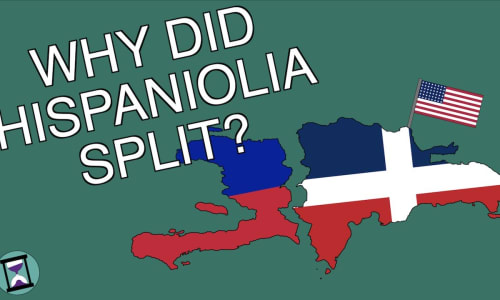See all History Matters transcripts on Youtube

Why did Haiti and the Dominican Republic Break Up? (Short Animated Documentary)
3 minutes 23 seconds
🇬🇧 English
Summaries Topics Transcript Chapters Titles Socials Twitter Blog Post Newsletter Quotes Quizzes Ask ChatGPT

Omnivision Solutions Ltd